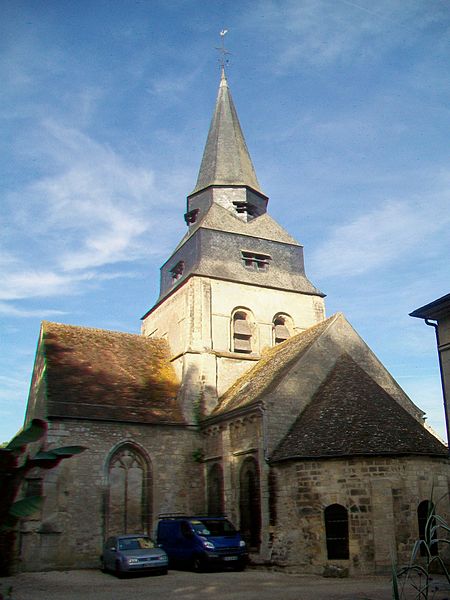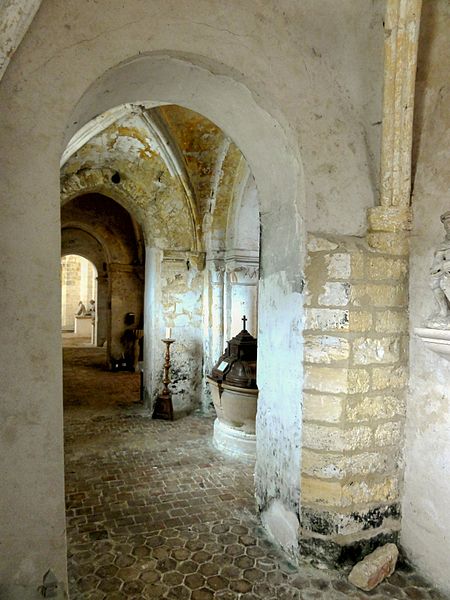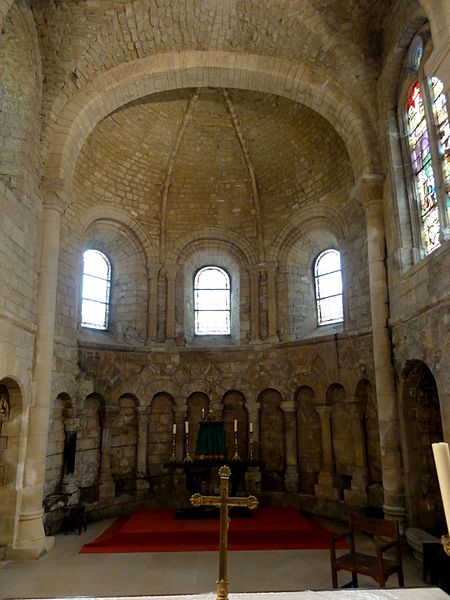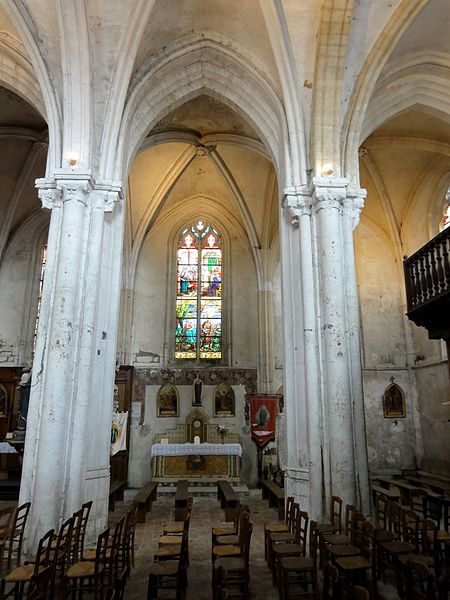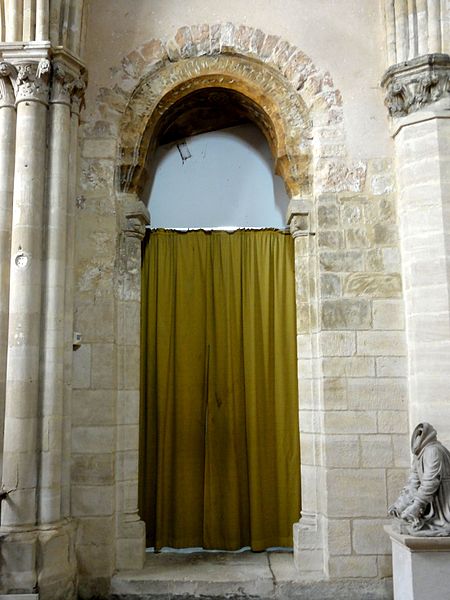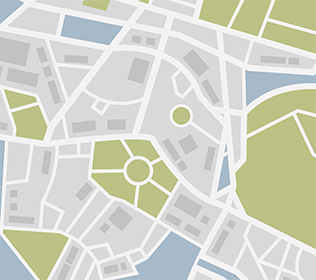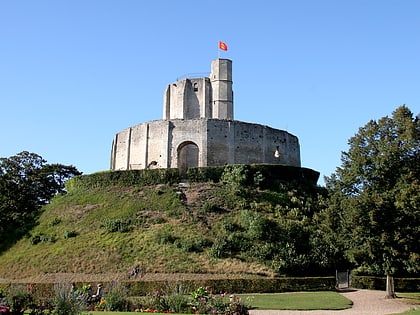St. Clair Church
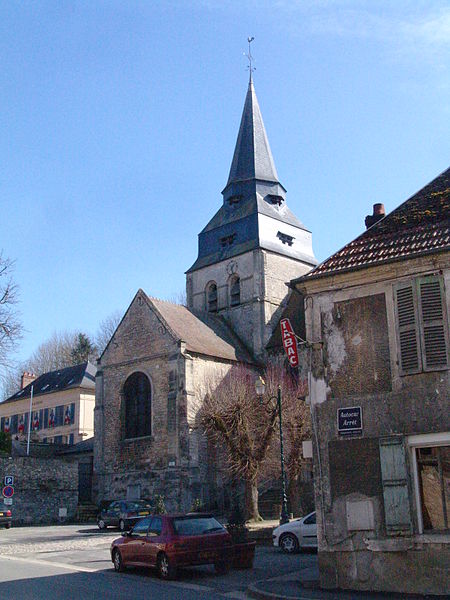
Facts and practical information
Notre-Dame Church is a Catholic parish church located in Saint-Clair-sur-Epte, France. Built on a Carolingian sanctuary of the ninth century, its choir with cul-de-four apse is the main Romanesque choir of the late eleventh century preserved in the Val-d'Oise. The decoration of the three windows of the chevet and the plated arcatures which decorate the base are quite remarkable, and the lowered profile of the intermediate double arches is unusual. The transept is only partially Romanesque, and the entrance to the former northern apsidal chapel is still visible. The central bell tower which rises above the transept crossing also dates from the end of the 11th century, but its unresearched architecture does not reach the level of most other Romanesque bell towers in the French Vexin and the surrounding area. However, it is distinguished by its unusual silhouetted 16th century timbered spire. The nave, also Romanesque, was rebuilt in the early Gothic style after the middle of the 12th century, but the façade with its two overlapping Romanesque portals remains from the Romanesque period. The high wall of the nave with four differently decorated windows and a cornice of a unique type, as well as the north elevation of the nave and its vaults, are the main preserved contributions of the third quarter of the 12th century campaign. As can be easily seen from the exterior, where the north and south elevations have nothing in common, a new south aisle was built at the end of the 15th century on the site of the south aisle and the south crossing. This part of the church was carefully built, but it has only one particularity: the large arcades towards the nave were obtained by knocking down the walls between the supports of the nave vault, which were then re-cut on the south side to adapt to the flamboyant gothic style of the new side aisle. It is at the same time the only homogeneous part of the building, unlike the narrow north aisle that was probably added after the construction of the nave, around 1130. Its bays were successively vaulted from west to east and illustrate the evolution of rib vaulting at the end of the Romanesque period and the beginning of the Gothic period. We can see one of the oldest rib vaults in the department, that of the first bay dating from around 1130. The authentic character of the choir having been hidden for a long time by woodwork and buttresses blinding the windows, the archaeological value of the church was recognized only belatedly, and it was classified as a historical monument only in 1938. Although revealing more and more of its richness with successive restoration campaigns, architectural specialists generally ignore the church of Notre-Dame de Saint-Clair-sur-Epte in their publications, and it remains little known. Long a pilgrimage church for the remains of St. Clair, it is now only occasionally used for Eucharistic celebrations after it was finally restored. The annual pilgrimage remains popular; it always takes place on July 16, after mass, at 9 p.m. The relics of St. Clair and his companion St. Cyrin are brought in procession to the miraculous fountain and the hermitage where, according to legend, they had their heads cut off in 884. A large pyre is lit with torches ignited by the processionaries, to the chant of "Saint Clair admirable, be helpful to us".
Île-de-France
St. Clair Church – popular in the area (distance from the attraction)
Nearby attractions include: Château de Gisors, Château d'Ambleville, Collégiale Saint-Gervais-Saint-Protais, St. Germain Church.


